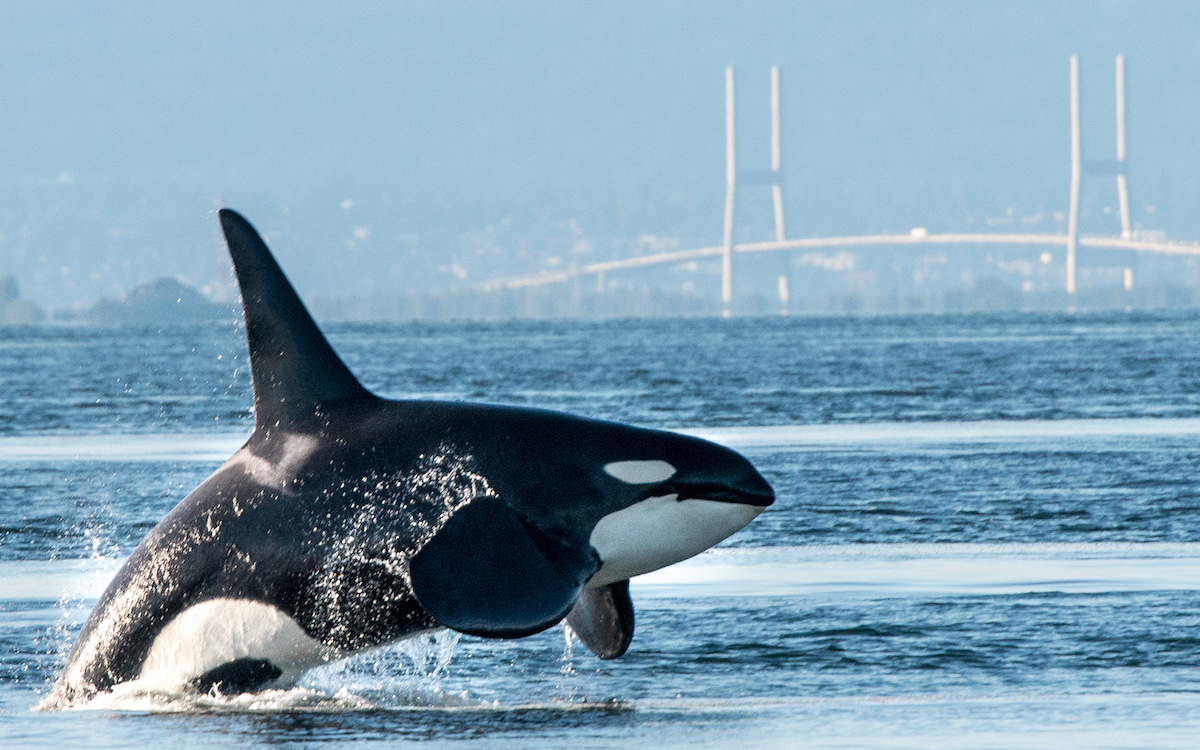Here's a word I wish I didn't know: endling. It means the last surviving individual of a species. A single word that contains a cataclysm.
When the Trump administration attacks the Endangered Species Act, it can seem like just the latest in a cascade of abysmal policies. We know it's wrong and that it's our job to fight it. But it's also possible to feel what's happening in a deeper, more empathetic way. It's the difference between opposing a bad policy and resisting a gross injustice.
That's why I was both honored and grateful to be asked to join elders from the Lummi Nation on Orcas Island, the largest of Washington State's San Juan Islands. The solemn occasion was a Sna ‘teng -- a naming ceremony for the southern resident orcas, some of the most endangered marine mammals in the US. The southern residents are the salmon-eating orcas of the Salish Sea, a network of coastal waterways located around southwest British Columbia and northwest Washington State. The Lummi have always called the whales qwe ‘lhol mechen, which means “our relations under the waves.” Now the 73 surviving orcas, who live in three distinct pods also have a Lummi family name: Sk'aliCh'elh.
It was a powerful day. Along with the naming ceremony, there was a ceremonial feeding on the water (with live salmon) in honor of three orcas who died this summer. Lummi youth also composed a song in honor of the orcas that was "transposed" into a frequency recognizable to whales. Here's what it sounded like:
We didn't see any orcas during the ceremony, but it was later reported that all three pods were spotted off nearby San Juan Island the day before and gone by the following afternoon. Summer is when the whales would normally be feeding on salmon in these waters, but a dramatic decline in salmon numbers has forced them to look elsewhere for food. Chinook salmon are themselves a critically threatened species, owing to both dams on the Snake River and warming water from climate change.
Orcas are not only highly intelligent but also have a lifespan equivalent to that of humans -- if not greater. The oldest members of the southern resident pods remember when their family members were routinely shot and killed. They lived through the horrific capture of dozens of their relatives for aquariums and amusement parks. And for decades, they've steadily seen their home waters degraded by toxic chemicals and inundated with noise pollution that interferes with their hunting. But the biggest threat of all, because of the salmon decline, is starvation. Something else I wish I didn’t know: What a starving orca looks like.
Saving the orcas will be impossible without first saving the salmon they depend on. To that end, the Sierra Club and many, many others have been working to remove four dams from the Lower Snake River. It won't be easy. In fact, we've already been working on this for 20 years.
What could make the difference now is that we know we could replace the electricity generated by those dams with power from wind and solar -- that and the knowledge that time is fast running out for both salmon and the orcas.
Fortunately, Washington State has an enlightened governor (and climate champion) in Jay Inslee, who has vowed to "take action at every level of the environment across our entire state ... to restore the ecosystem to one that sustains orcas, salmon and the quality of life for all Washingtonians.” Whether Governor Inslee's determination will ultimately extend to removing the necessary dams remains to be seen.
The insight we can gain from the Lummi is both simple and profound: Other species are not resources to be managed -- or squandered. They are our relatives -- however distant -- and our fates are more entangled than we can begin to comprehend. It's something that a Donald Trump will never understand: Saving the orca, the salmon, or any other species, is also a step toward saving ourselves.
Two new orca calves have been spotted among the southern residents this year and, as of a couple of weeks ago, both seemed to be doing well. Ultimately, though, their fate and that of their extended family, our extended family, is up to us. Only we can ensure that neither of these babies becomes an endling.
How can you help today? Start by taking action to defend the Endangered Species Act.
